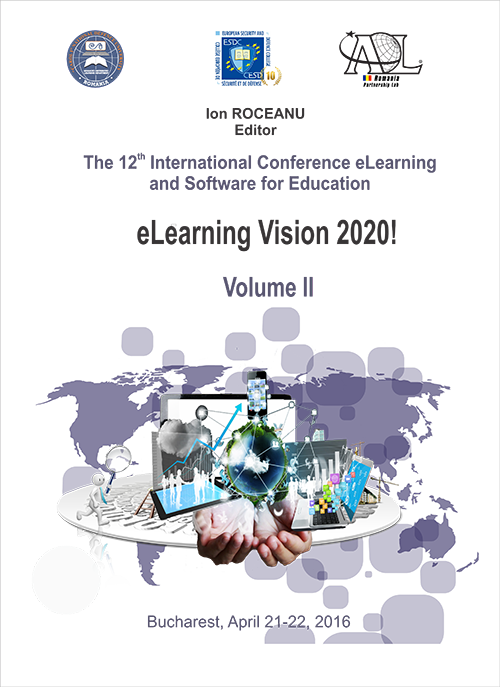MOBILE APPLICATIONS FOR TRAINING MULTI-MODAL MOBILITY USING SOCIAL NETWORKS
MOBILE APPLICATIONS FOR TRAINING MULTI-MODAL MOBILITY USING SOCIAL NETWORKS
Author(s): George Suciu, Cristina Butca, Lucian NeculaSubject(s): Media studies, Communication studies, Theory of Communication, ICT Information and Communications Technologies, Sociology of Education
Published by: Carol I National Defence University Publishing House
Keywords: Mobile Training; Multi-Modal Mobility; Validated Learning; Social Networks;
Summary/Abstract: Nowadays, mobile smartphone applications are becoming increasingly used and help users solve many problems of daily life, including multi-modal transport. One major cause of the fast adoption is the emergence of social networks that have a significant impact on the social life of users. In addition to the work schedule, the traffic conditions in large cities make citizens spend a lot of time on the road, having increasingly less time available for socializing with family or friends. This paper presents a solution that trains drivers, bicycle riders, pedestrians and other road users to combat traffic problems, finding out where their friends are and how to get to a specific location faster. The proposed solution demonstrates the success of implementing an accelerated validated learning process version, focused on its context and industry. The proposed validated learning process will allow the MobiWay (Mobility Beyond Individualism: an Integrated Platform for Intelligent Transportation Systems of Tomorrow) platform to be brought to the market faster and in a more successful manner. The main contribution of this paper consists of the integration of an Android application in the MobiWay platform that will focus on the social life of road users relying on their contacts from mobile devices and social networks. The users will be able to choose a combination of the three types of multi-modal transport (driving, cycling or walking) and the mobile smartphone application will provide an optimized route to their destination in concordance with the preferred options and traffic patterns learned by the platform.
Journal: Conference proceedings of »eLearning and Software for Education« (eLSE)
- Issue Year: 12/2016
- Issue No: 02
- Page Range: 460-466
- Page Count: 7
- Language: English

